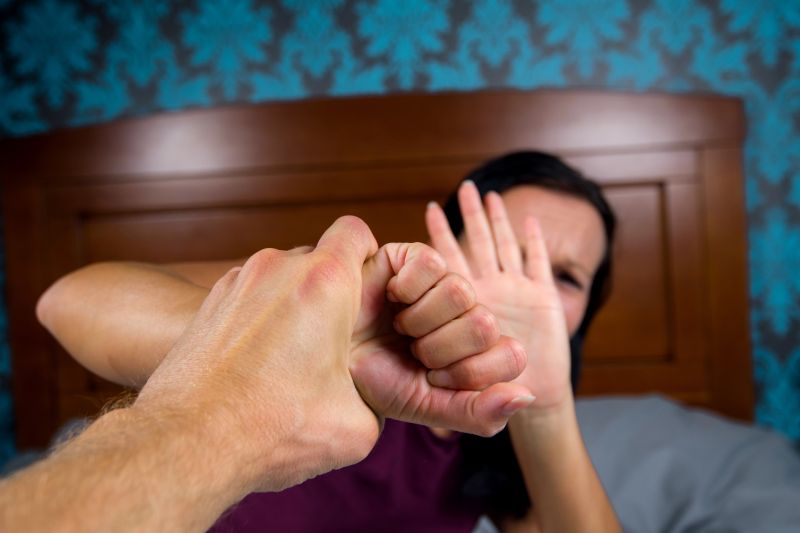How Domestic Violence Affects Divorce & Child Custody In VA
How Domestic Violence Affects Divorce & Child Custody In VA
Key Takeaways:
- Domestic violence can influence property division in Virginia, shifting what “fair” looks like in divorce.
- Abuse may affect spousal support, reducing or denying it for the abusive spouse.
- Courts prioritize child safety, often limiting custody or visitation when violence is present.
- Protective orders and strong legal representation are key to protecting your rights and future.
Divorce is hard. Divorce with abuse in the background? That’s a different kind of weight entirely. You’re not just ending a relationship; you’re trying to protect your future.
In Virginia, domestic violence doesn’t just leave emotional scars. It can shape the legal outcome of everything from how property is divided to whether your children are safe. Courts are required to consider violence in these cases, but how they do it and how you present your story can change everything.
How Virginia Defines Domestic Violence In The Divorce Context
Not all abuse leaves bruises. Virginia law recognizes this. When it comes to divorce, domestic violence isn’t limited to punches or broken bones. It can also mean threats, stalking, intimidation, emotional manipulation, forced isolation, or financial control. The key is whether one person is using power to dominate the other.
You don’t need a criminal conviction to raise domestic violence as a factor in your divorce. Courts will consider documented patterns of abuse, even if no one’s ever been arrested. Things like protective orders, police reports, text messages, and witness statements can all carry weight in court.
Protective orders in particular send a strong message. If a judge has already found enough evidence to grant one, that judgment may influence decisions around property, support, and most importantly, custody. Abuse doesn’t have to be proven beyond a reasonable doubt. It just has to be credible and relevant to the case.
Impact On Property Division
Virginia isn’t a 50/50 state. It follows what’s called equitable distribution, meaning assets are split fairly, but not always equally. And when domestic violence is part of the picture, “fair” can look very different.
If one spouse caused harm that affected the marital estate, the judge can adjust the outcome. For example, if an abusive partner destroyed property, drained shared bank accounts out of spite, or used coercion to take control of financial decisions, the court may reduce their share. Abuse can also factor in if one spouse was prevented from working or contributing to assets because they were being controlled or isolated.
Let’s say your partner damaged your home in a fit of rage or ran up debt in your name. That history doesn’t just disappear when the divorce papers are filed. Virginia courts have the authority to consider it, and we help you make sure they do.
How Domestic Violence Affects Spousal Support
Spousal support or alimony isn’t automatic in Virginia. It’s based on need, income disparity, and fairness. But if there’s a history of domestic violence, the court can factor that in on both sides.
An abusive spouse may be denied support, even if they would typically qualify. That’s because judges aren’t required to reward someone who caused harm or made it harder for their partner to earn income.
On the other hand, if you were financially controlled, kept from working, or emotionally abused into dependence, that’s also something the court can weigh when determining how much support you receive, and for how long.
The timing matters. If you’re leaving an abusive relationship, it’s important to gather documentation early. This may include texts, emails, or statements from friends and therapists.
These pieces of evidence help us build a clear picture of what you endured and why support should reflect your experience. In these cases, it’s not just about money. It’s about justice and recovery.
When Violence Shapes Parenting Decisions In Virginia
Virginia courts don’t take chances when children are involved. The law puts their well-being above all else. If there’s abuse in the home, even if it wasn’t directed at the child, it can affect how judges assign custody and visitation.
Exposure to violence, threats, or controlling behavior tells the court that something’s wrong. Even if there are no physical injuries, the emotional toll on a child is serious. That’s why judges often order supervised visitation or restrict parenting time when there’s a proven pattern of abuse.
Protective orders carry weight here. If one parent has a history of harming or intimidating the other, that history won’t be ignored. We help you present the truth in court, not just to protect yourself, but to make sure your children aren’t pulled into a dangerous or unstable situation.
How Protective Orders Fit Into Divorce & Custody
Protective orders aren’t just about keeping someone away; they’re legal tools that can directly shape the outcome of a divorce or custody case. In Virginia, there are three types: emergency, preliminary, and permanent. Each one offers a layer of security, and they can apply whether or not criminal charges have been filed.
Once issued, a protective order can:
- Require the abuser to leave the shared home, even if both names are on the lease or mortgage.
- Temporarily award custody to the victim and restrict the other parent’s access.
- Block all forms of contact, including calls, texts, or third-party messages.
- Order the abuser to surrender firearms.
If you’re in the middle of a custody battle or divorce and feel unsafe, requesting a protective order may be your safest first step. Judges take them seriously. And when handled properly, they not only create space to breathe but also help lay the groundwork for a safer long-term outcome.
Building Your Defense If You’ve Been Accused Of Domestic Violence
Being accused of domestic violence can feel like your entire future is on the line. In Virginia, these accusations can affect everything: your access to your children, your home, your finances, and even your freedom. Whether the claims are true, exaggerated, or entirely false, you deserve a fair hearing and a chance to defend yourself.
Don’t Assume It Will All Blow Over
One of the most damaging mistakes is staying silent and hoping the accusations will disappear on their own. They won’t. Protective orders can be filed quickly, and you may be blocked from your home or your children before you even step into a courtroom. The sooner you take legal action, the better your chances of protecting your rights.
Collect Your Own Evidence
You have a right to tell your side of the story. Save messages, emails, call logs, and anything that can help clarify the relationship history. If there are witnesses who can speak to the situation, we will help you gather those statements. The goal isn’t to minimize the situation; it’s to give the court a fuller, more accurate picture of what really happened.
Work With A Legal Team That Understands The Stakes
At The Irving Law Firm, we’ve represented both survivors of abuse and individuals who have been falsely accused. We understand how emotional, complicated, and high-stakes these cases are. Our role isn’t to judge; it’s to make sure your rights are respected and your future is protected.
Being accused of domestic violence in a divorce or custody case doesn’t automatically mean you lose everything. But doing nothing almost guarantees you will. If you’re facing these accusations in Manassas or Northern Virginia, we help you respond strategically and protect what matters most.
Turning The Page When You’re Facing A Domestic Violence Accusation
An accusation of domestic violence can feel like your whole life has just flipped upside down. Whether it came out of nowhere or followed months of escalating tension, you’re now facing serious consequences that affect your family, your rights, and your reputation.
At The Irving Law Firm, we know how high the stakes are. We’ve worked with people who’ve been accused in the middle of divorce and custody battles—people trying to hold onto their role as a parent while also defending their name. This isn’t about pretending the issue doesn’t exist. It’s about helping you handle it with clarity, facts, and strategy.
You may be walking into court with a lot on your shoulders. Let us help you carry some of it. With the right legal support, you can respond effectively, protect what matters most, and move forward, without letting one moment define the rest of your life.






